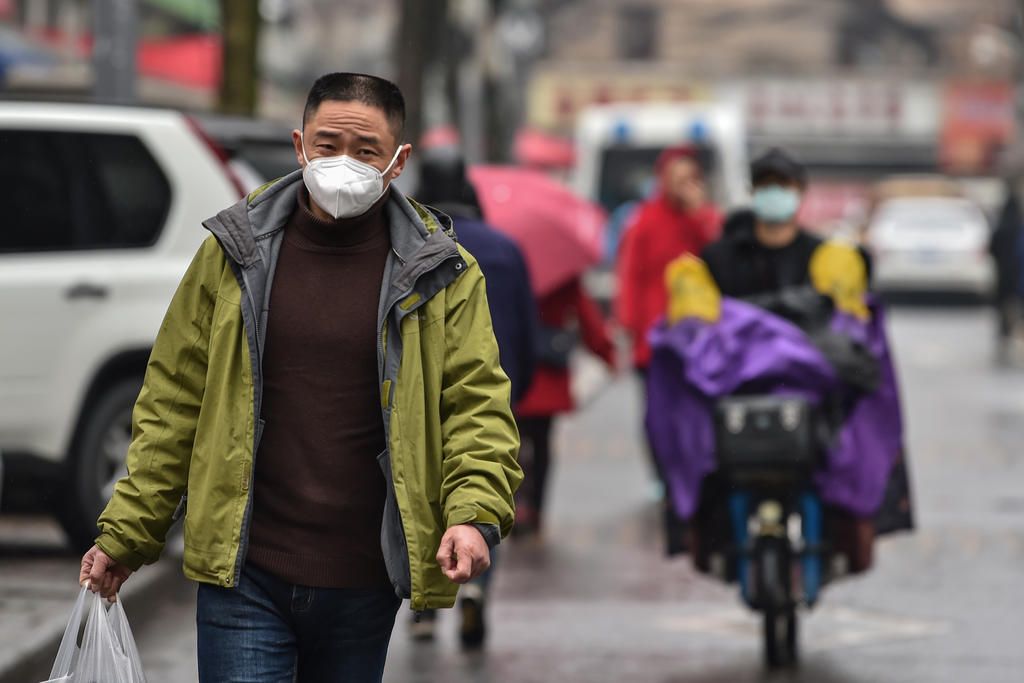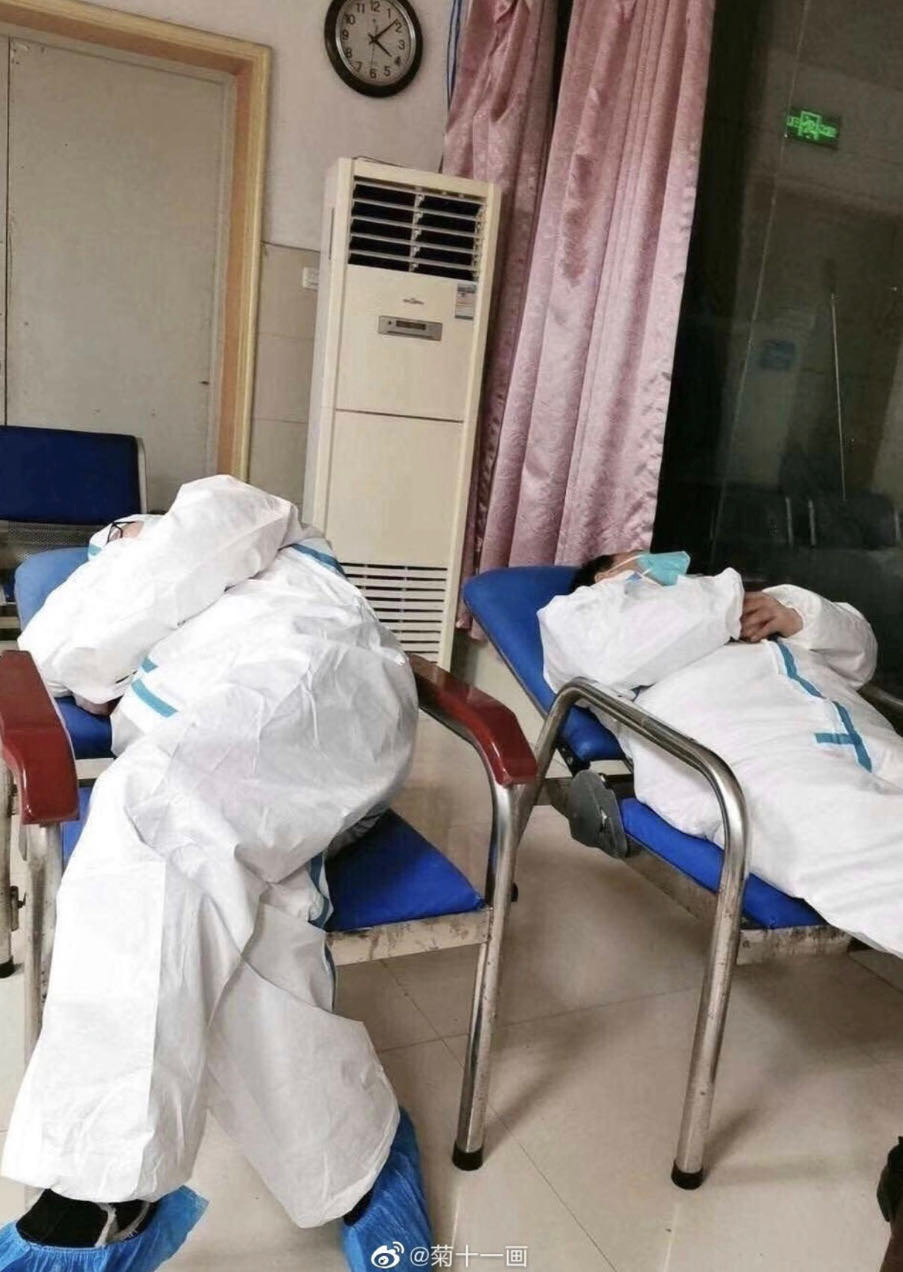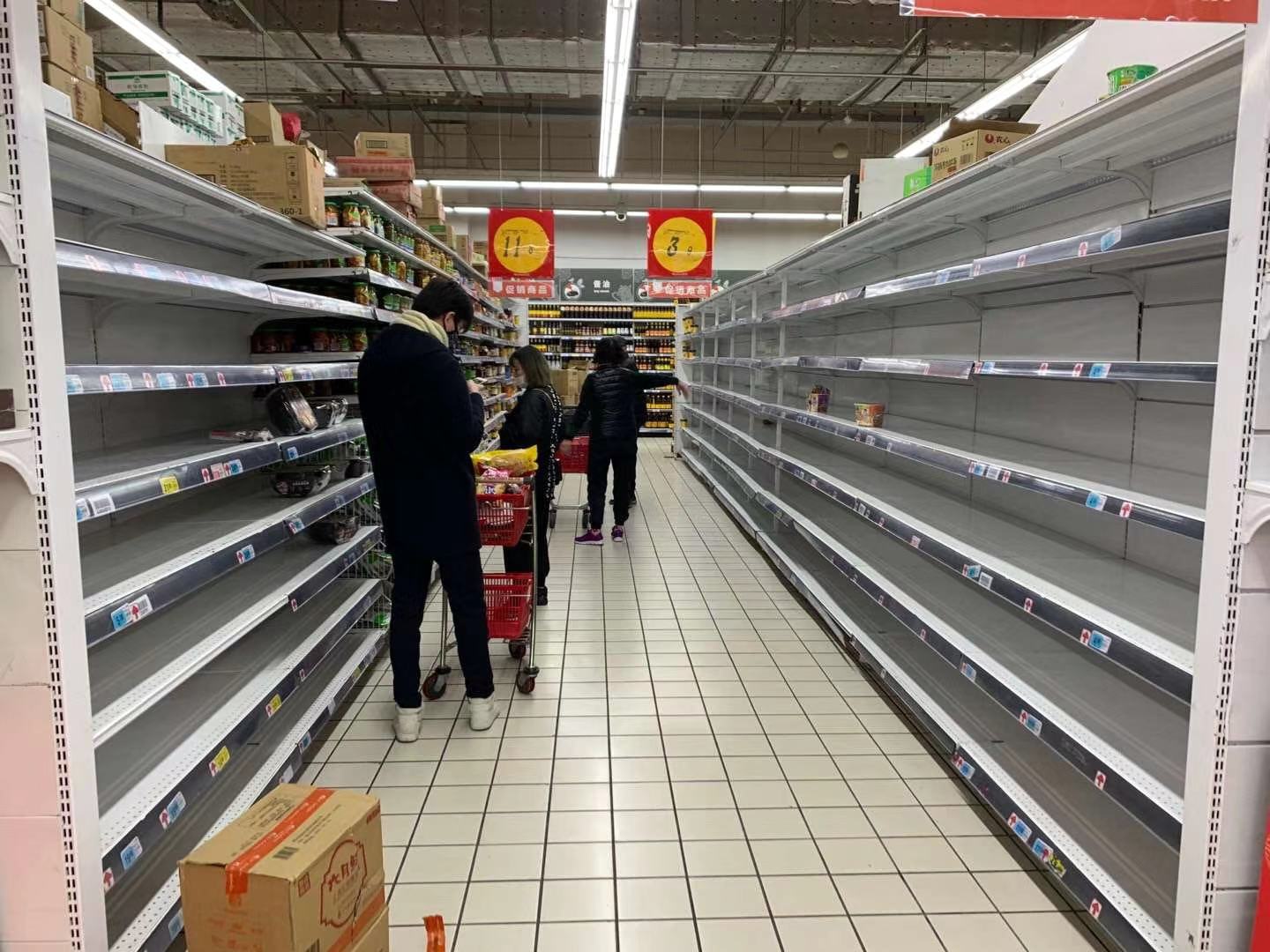Life during coronavirus

A few minutes every morning is all you need.
Stay up to date on the world's Headlines and Human Stories. It's fun, it's factual, it's fluff-free.
Since Chinese public health officials first reported to the World Health Organization (WHO) on December 31 that the coronavirus was infecting people in Wuhan, over 37,000 have caught the virus and more than 800 are dead, according to China’s National Health Commission and other authorities.
The coronavirus, like Ebola and Severe Acute Respiratory Syndrome (SARS), originated from animals. Like SARS, the coronavirus started in China and has spread across the globe with the WHO now declaring the outbreak a global health emergency.
With the vast majority of recorded cases and deaths taking place in China, the country has largely come to a standstill.
The Chinese government’s attempts to contain the virus
The Chinese government announced on January 23 that it was putting Wuhan, the city at the center of the outbreak, under lockdown. Nevertheless, despite government action to cut off a city of 11 million, the virus has continued to spread.
Following the lockdown of Wuhan, the government has placed an additional 16 cities, and their combined population of 46 million, under quarantine as the virus has shown no signs of slowing.
Changes in everyday life
Despite being under quarantine for over three weeks, the number of people newly infected in Wuhan continues to double every four days, with hundreds having now died there. Although the construction of a new hospital only took a matter of days, residents in Wuhan describe “doomsday” scenes as patients overwhelm every hospital.

With so many new cases and a lack of facilities in which to treat the infected, authorities have started to direct patients to make-shift hospitals. Patients in Wuhan have found themselves in a building complex, an exhibition centre, even a sports stadium.
Chinese Vice Premier Sun Chunlan recently visited Wuhan, saying the city and the country as a whole face “wartime conditions” and that anyone who is sick and requires treatment should go into quarantine.
Medical workers are going door to door, checking the temperature of residents daily. Meanwhile, patients are being confined en masse at quarantine centers.
Guangdong and Shenzhen, two megacities in China’s southern manufacturing heartland, have also imposed lockdowns, but restrictions there are not as drastic as those in Wuhan. Only residents are allowed to enter housing compounds but, unlike in Wuhan, authorities in Guangzhou and Shenzhen are allowing people to leave the city.
With the virus still spreading and no cure forthcoming, officials are taking measures to try and force people to see a doctor if they feel sick. In one such instance, the Chinese city of Hangzhou, home to 10 million, temporarily banned the sale of flu and cough medicine at pharmacies in an effort to persuade people to go to a hospital instead.
Following the confirmation of human to human transmission, Chinese officials are also discouraging people from gathering in public.
Footage obtained by The Millennial Source shows police officers going into Mahjong rooms in Jiangmen and breaking the tables to try and stop people from congregating.
Similar reports are coming from Hong Kong. According to an anonymous source, police on the mainland are penalizing anyone who goes outside without a face mask on.
Despite fleets of trucks arriving every day to deliver supplies, residents in Wuhan are stockpiling food, fuel and medical items, worried that they will run out with the city cut off.

In Hong Kong, “panicked Hongkongers have cleared all shelves in the supermarket," according to one local resident.
Alongside food and medicine, surgical face masks have become a valuable commodity in virus-hit China. But stocks are dwindling.
One Beijing pharmacy has barricaded its doors and drilled a hole in the window for customers to communicate with the pharmacist. A sign on the door reads, “Face masks sold out."
In Hong Kong, government leader Carrie Lam revealed that the region was running out of face masks.
Chinese across the country can feel the presence of the virus. In Shanghai, the financial capital of China, streets and shops that are usually bustling are now deserted with many businesses having been forced to close as people choose to stay indoors. Meanwhile, a resident of Macau reports that the city is a “ghost town" and that “all residents are required to stay home per Macau government and all drastic measures still in full force.”
Responses to the Chinese government
Claudia, a resident of Shanghai who has lived in the city for over two years, described the current situation in the city.
“Until the 24th everything was normal, after that, day by day, many restaurants and touristic places were closed, and we were advised not to leave our homes. Since then, businesses are closed and the streets empty."
Although Claudia is in quarantine, having received official notification from her employer and the city government, she says she is not scared. In her opinion, “China is really doing an amazing job" at containing the virus. At the moment, Claudia reports that Shanghai “is deserted" but she thinks that “from next week when everybody starts coming back to Shanghai, we will see real consequences."
Not everyone shares the same positive view of China’s response to the outbreak. Jessie Lau, a freelance journalist based in Hong Kong, wrote in the New Statesman that “China’s slow response to the initial outbreak is symptomatic of a governing system where power is increasingly centralized at the top and local officials are not incentivized to take decisive action when necessary."
Wan, a local teacher in China, told reporters that “the entire economy has been shut and the consequences will be huge. I hope the crisis will be over soon, but really it could go on for months."
For many, the hardest thing to deal with has been the loss of normality.
Writing in the New York Times, Frankie Huang, a writer and illustrator based in Shanghai, described how “as the lockdown wears on, we’ve stopped changing out of our pajamas, and the days seem to melt into each other."
While Huang and his family are under quarantine, and Huang starts each day by pouring “over the latest news, the number of new deaths, new confirmed infections, new measures to stem the coronavirus’s progress, new speculations," for him “everything feels far away" from the isolation of their 23rd-floor apartment, which he describes as their “own little world."
Death of Dr. Li Wenliang
Anxiety and outrage has flooded Chinese social media following the death of Dr. Li Wenliang, the whistleblower who tried to warn authorities about the impending danger of coronavirus, and Yan Cheng, a teenager with cerebral palsy who died when his father was in quarantine.
With the country under immense strife, many have put their own needs aside to try to help. Truck drivers deliver essential supplies to the worst-hit areas, unsure of when or even if they will receive payment, they continue to work anyway. Volunteers go to the houses of those quarantined elsewhere and feed the pets they left behind.
With the suspension of public transport, drivers of ride-hailing apps have taken to ferrying medical staff to and from hospitals. One driver told CNN that he doesn’t mind that his passengers often leave without saying “thank you". Instead, he believes that “In this time of need, we Wuhan people have to save ourselves. Everyone has got to do their own part."
In Hong Kong, where face masks have become so valuable, a resident spoke of how “Hongkongers are helping each other and are willing to share masks with the elderly and minorities."
[article_ad]
Have a tip or story? Get in touch with our reporters here!




Comments ()